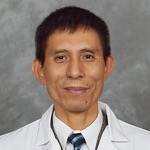Associate Professor, Cellular and Molecular Biology
Phone: 903.877.2837
Email: guohua.yi@uttyler.edu
Department: Cellular and Molecular Biology
Popular Searches

Associate Professor, Cellular and Molecular Biology
Phone: 903.877.2837
Email: guohua.yi@uttyler.edu
Department: Cellular and Molecular Biology
Dr. Guohua Yi joined the faculty at the University of Texas at Tyler Health Science Center in September 2019 as an Associate Professor. He completed his PhD studies at Wuhan University, China, majoring in Molecular Virology. He then pursued his postdoctoral training at Rutgers University and at the Langone Medical Center of New York University. He then joined Texas Tech University Health Sciences Center as a junior faculty member. During that time, Dr. Guohua Yi had interests in immunopathogenesis, gene therapy and vaccine development for a variety of devastating viral diseases, such as HIV, Zika, and influenza viruses. Currently, his research focuses on developing an applicable CRISPR-Cas9 in vivo delivery strategy for T cell and other immune cells gene editing, which may result in novel treatments for HIV and cancers. In addition, his lab’s research also includes phage therapy for the treatment of Mycobacterium tuberculosis (Mtb) infection, the role of HIV-driven metabolites in regulating immune responses to Mtb infection, and the development of a universal vaccine for SARS-CoV-2. Dr. Yi’s research has been funded by the National Institute of Allergy and Infectious Diseases (NIAID) and the National Heart, Lung, and Blood Institute (NHLBI), as well as Common Funds of the National Institutes of Health (NIH). Dr. Yi has published over 20 peer-reviewed journal papers and served as an ad hoc member for several NIH study sections.
Education and Training
Ph.D, Molecular Virology, Wuhan University
Postdoctoral training: Rutgers University (Virology), New York University (Medical
microbiology), Texas Tech University Health Sciences Center (Immunology).
Research Interest
Gene and cell therapy for infectious diseases and cancer treatments using targeted
delivery of gene editing system and CAR-T cells;
Vaccine development for infectious diseases, such as HIV, influenza and SARS-CoV-2;
Targeted phage therapy for treating drug-resistant bacterial infections, including Mycobacterium Tuberculosis.
Publication Highlights